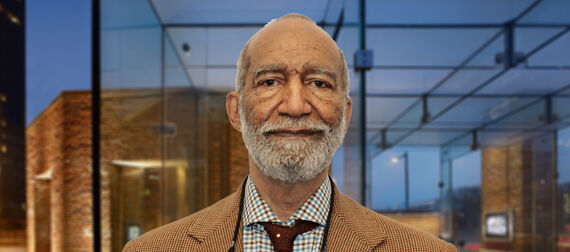Are you ready for the Next Big Thing? Forget about Penn’s Landing, those terminally intractable 13 acres. Forget about the Walt Disney Memorial Parking Lot at Eighth and Market, the one that’s costing us all millions of dollars. Are you ready for the Next Big Thing?
How about the idea to put a boutique hotel on Boathouse Row? And along with that, another upscale hotel on Peters Island, in the middle of the Schuylkill, with continuous ferry service to link the island with the Azalea Garden?
Have you heard about the plan to convert that empty factory building at 22nd and Arch, the one that has been abandoned for as long as anyone can remember, into a mixed-use facility with performance venues and an arts incubator at its center?
Speaking of Penn’s Landing, a group has figured out how to solve two problems with one solution. They plan to refurbish the S.S. United States, currently rusting away and forlorn at Pier 90, and turn it into a floating hotel anchored at Penn’s Landing. That would certainly put the river back at the center of Penn’s Landing and create a big attraction to boot.
Finally, someone has got a plan to re-energize FDR Park, perhaps the most underperforming piece of green space in the city. The plan here is to bring a concert amphitheater and some family attractions there in order to turn FDR Park into a real destination. It’s about time.
At the other end of town in the Northeast, developers are pushing something called "the e-zone" at the corner of Castor and Cottman avenues. The e-zone promises to be a high-tech entertainment complex occupying an otherwise bleak intersection. As one person put it bluntly: "There’s nothing to do in the Northeast," and the e-zone promises to change that.
In the shadow of Cesar Pelli’s sparkly new office tower at 30th Street Station, a group of civic-minded individuals wants to build what they call "The Diver-city Community Center," a place where students and others from the city’s various populations can come together to learn, interact and socialize.
These are the Next Big Things.
If you haven’t heard of any of these projects, don’t feel too bad. The "developers" for each of these are 12th-graders at Masterman High who are all enrolled in Amy Cohen’s class, Philadelphia: Past, Present, Future. Their assignment was to design the Next Big Thing, and present a professional-looking proposal to a design competition. I was lucky enough to be one of the judges.
In thinking about the Next Big Thing, however, Cohen instructed her students to keep several things in mind: How will this project enhance the physical and social environment in the city? How will it capitalize on the existing infrastructure in the area? How will it be attentive to Philadelphia’s distinctive building traditions and its built environment? Will it be economically feasible?
The results are, in a word, dazzling. Many of them are imaginative, others are important. All demonstrate a real passion for the city, and a vision for how it might be transformed. Each of these projects is inspiring, and when the students presented them their energy and enthusiasm was infectious.
It doesn’t matter that, in the end, these students don’t yet fully understand the economics of development, of land acquisition and construction finance. Nor does it matter that these students don’t understand that you must budget grease money to make any project fly in this town. What does matter is that these students approached their task with a real understanding of urban design and how new developments can strengthen the city’s urban fabric rather than rip it apart.
Indeed, Cohen’s high-school students demonstrated a more thorough understanding of good urban planning and design than many of the adults who are appointed to watch over these things for us, but who too often don’t.
One conclusion to draw from this design competition is that all members of the Zoning Board of Adjustment and the Historical Commission ought to be required to enroll in Cohen’s class. At the very least, these 12th-graders could teach those bodies a lesson or two.
So who won this competition for the Next Big Thing? We all did. Or will, if we can persuade more teachers like Cohen to teach their students to love and care about this city, and if we can persuade these students to make this city, in one way or another, their life’s work. The Next Big Thing competition proved that these students have a marvelous capacity to think big. And in a town with a penchant for thinking small, that is a precious resource.


